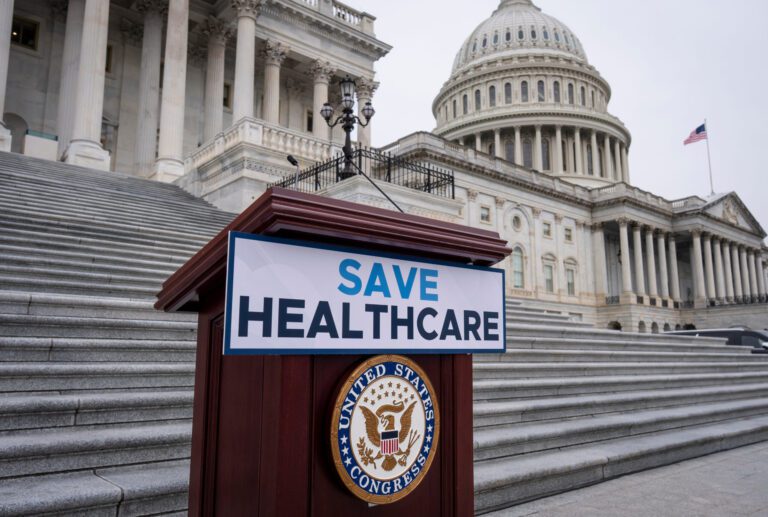Senate Democrats Face GOP Resistance on Proposed Health Care Reforms
Following a recent breakthrough that allowed President Trump’s funding deal to move forward, Republicans are casting doubt on the chances of Democrats achieving their desired health care reforms. With a government reopening anticipated in the next 48 hours, tensions are rising in the Senate, particularly among Democratic lawmakers.
Tensions Rise Among Senate Democrats
On Sunday night, the Senate reached the crucial 60-vote threshold needed to advance the funding bill. Eight Democratic senators joined 52 Republicans in invoking cloture, paving the way for a vote that could occur as early as Monday night. Many Democrats who supported the motion are banking on negotiations for an extension of the enhanced Affordable Care Act (ACA) insurance subsidies.
Key Takeaways:
- Vote Breakdown: Eight Democrats aligned with 52 Republicans to advance the funding bill.
- Senate Democrat Stance: They hope for negotiations on ACA insurance subsidies.
GOP Pushback on Health Care Subsidies
Republican leaders are making it clear that they are not inclined to support an extension of the ACA subsidies. Senator Bill Cassidy, chair of the Senate Health, Education, Labor, and Pensions Committee, emphasized this point during a recent Senate floor discussion.
“We’ve gotta abandon set positions,” said Dr. Cassidy, advocating for a shift to a “pre-funded federal flexible spending account” that would empower patients over insurance companies.
Highlights of Cassidy’s Remarks:
- Critique of Current Subsidies: Cassidy expressed skepticism about the efficacy of the enhanced premium subsidies.
- Patient-Centric Approach: He argued for providing funds directly to patients instead of insurers.
Senator Cassidy also echoed sentiments from a recent Truth Social post by Trump, which advocated redirecting federal funds to taxpayers.
Democratic Aspirations and Republican Obstacles
The primary advocate for extending ACA subsidies is Senator Jeanne Shaheen, who has secured vows from some Republican colleagues for a vote by year-end. However, House Speaker Mike Johnson has dismissed the idea of backroom agreements, stating:
“I’m not promising anyone anything. There’s no way. That was never possible or appropriate.”
Republican Position:
- Lindsey Graham’s Firm Stance: The Senate Budget Committee chairman asserted that a GOP-led Congress will not support extending ACA subsidies.
Trump Sides with Conservative Republicans
As the debate intensifies, Donald Trump reiterated his opposition to extending the health care credits. He emphasized a collaborative approach with Senators Lindsey Graham and Katie Britt, focusing on a system that prioritizes direct support to patients.
“We want a health care system where we pay the money to the people instead of the insurance companies,” Trump remarked during a press briefing.
Key Republican Opinions:
- Trump’s Vision: He advocates for redirecting funds to the public, aiming to overhaul current ACA structures.
- Support for Graham’s Position: Both Trump and Graham maintain that extending the subsidies will not be supported by their party.
Conclusion
As discussions continue in the Senate, the prospect of health care reforms under a Democratic banner appears increasingly challenging amid GOP pushback. With various stakeholders expressing their views, the unfolding political landscape will determine the future of ACA subsidies and broader health care initiatives.
For more information on the Affordable Care Act and its implications, check out HealthCare.gov.


